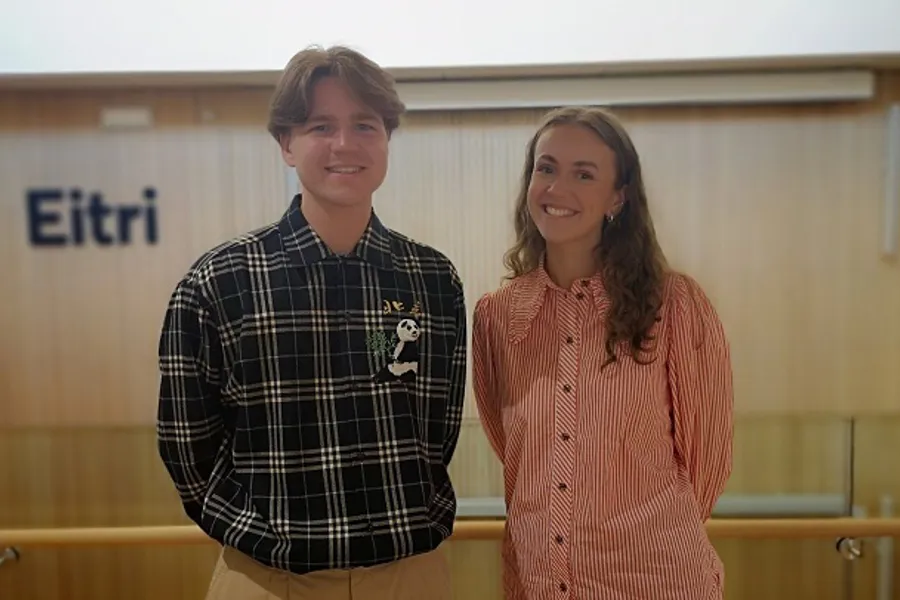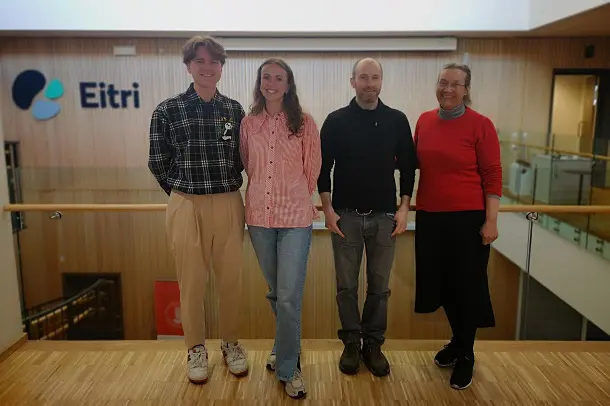MTEK Interns Make an Impact at PiV: Meet Thea and Eivind!
Two MTEK students Thea and Eivind were participating in PiV for the past few months. Their mission in this project was to create a tool for quality control of immunohistochemical stains in digital pathology.


From left: Eivind, Thea, Hrafn and Sabine
Get ready to meet two dynamic individuals who are sparking innovation at PiV (Patologi i Vest) - Thea Marie Dalen and Eivind Femtehjell! As second-year master students specializing in medical technology at the University of Bergen, they have been contributing to PiV as part of their studies. Their mission? To create a tool for quality control of immunohistochemical stains in digital pathology.
For the past few months, Thea and Eivind have been hard at work establishing an automatic analysis strategy to monitor day-to-day variation of whole slide images (WSI) stained by immunohistochemistry. Their goal is to detect false negatives or abnormally stained sections. Their particular focus is investigating staining quality of immunohistochemistry applied to non-neoplastic kidney biopsies.
Why is this important? Well, when it comes to non-neoplastic kidney biopsies, control tissue containing plasma cells is frequently used. Plasma cells express both immunoglobulins and light chains, which can be deposited in the kidney tissue and lead to kidney disease. This makes a correct and reliable immunohistochemical stain crucial in kidney biopsy diagnostics. Without precise staining analysis, identifying chronic kidney diseases becomes challenging, leading to potential misdiagnoses and ineffective treatments. By developing an automated method for evaluating the staining quality of whole slide images, Thea and Eivind are making a significant contribution to the field of digital pathology and helping to ensure accurate diagnoses for patients with kidney diseases.
With their expertise in QuPath and Python, Thea and Eivind have developed an automated method for evaluating the staining quality of WSI, improving the way we approach this important aspect of digital pathology.
How do Thea and Eivind feel about participating in PiV? Let’s hear them out:
“Our time at Eitri has been a great learning experience and we have enjoyed being part of the team. Working independently on this project has been a great learning experience, which we will take with us in our studies. We have faced many challenges, but we have also made a lot of progress at the same time. What we have learned at the university has been put to the test, and it has been both challenging and very rewarding.
We want to thank Sabine and Hrafn and the rest of the team for all the help and support we have gotten in this project. We are grateful for this experience.”
Thea and Eivind will finish their practice in PiV in a few weeks. To learn more about their innovative work, check out their blogg.
Way to go, Thea and Eivind!